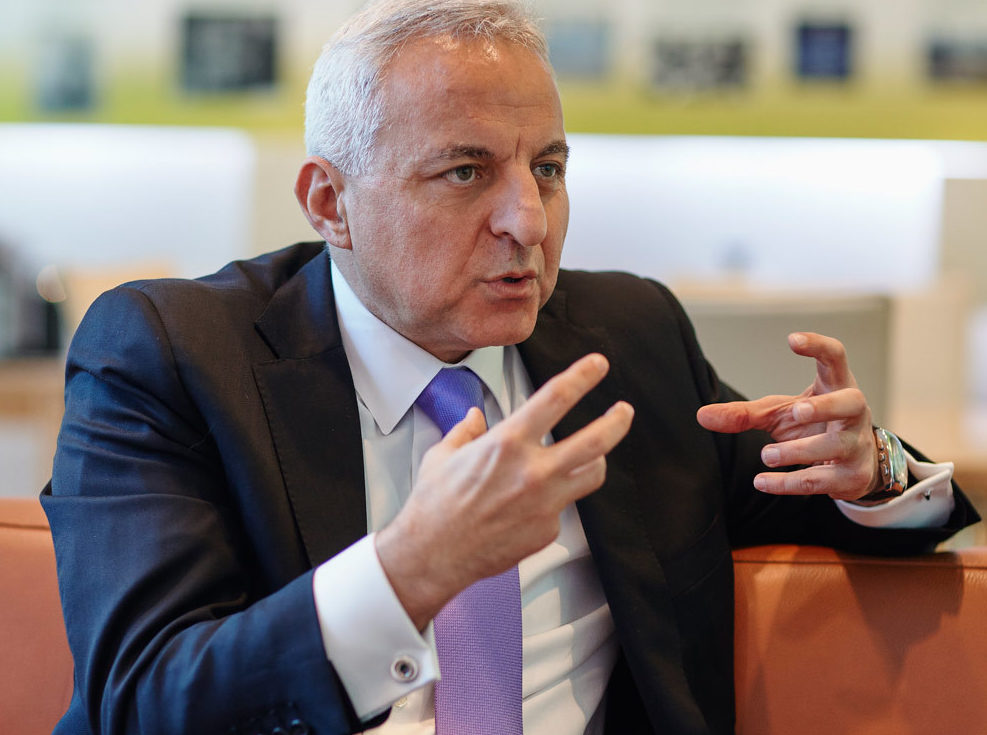Middle Managers: Bridging The Gap Between Leadership And Workforce

Table of Contents
Communication: The Cornerstone of Effective Middle Management
Effective communication is the bedrock upon which successful middle management is built. It's a two-way street, requiring clear, consistent, and transparent messaging flowing both upward (to upper management) and downward (to the team). This bidirectional communication fosters trust, transparency, and ultimately, improved employee engagement.
- Active listening skills: Middle managers must be adept at listening to their team's concerns, understanding their perspectives, and effectively conveying these concerns to upper management. This ensures that employee voices are heard and valued.
- Effective communication of company goals: Clearly articulating the company's overall goals and strategies to the team is essential for alignment and buy-in. This requires translating complex information into easily understandable terms.
- Utilizing diverse communication channels: Employing a variety of communication methods, including regular team meetings, individual check-ins, emails, and project management software, ensures information reaches everyone effectively.
- Providing constructive feedback and recognition: Regular feedback, both positive and constructive, is crucial for employee growth and motivation. Celebrating achievements boosts morale and reinforces positive behaviors.
Communication barriers, such as unclear messaging, information silos, or a lack of trust, can hinder progress. Overcoming these barriers requires implementing robust communication strategies, establishing clear feedback mechanisms, and fostering an open and honest dialogue between all levels of the organization.
Mentorship and Team Building: Fostering a Productive Work Environment
Middle managers play a pivotal role in nurturing a positive and productive work environment. They act as mentors, guiding and supporting their team members' professional development, while simultaneously fostering strong team cohesion. This involves a multifaceted approach to team leadership and employee development.
- Identifying individual strengths and weaknesses: Understanding each team member's unique skills and areas for improvement is crucial for effective delegation and training.
- Providing opportunities for growth: Middle managers should actively seek out opportunities for their team's professional development, whether through training programs, mentorship initiatives, or cross-functional projects.
- Building a positive team dynamic: Fostering collaboration, trust, and mutual respect among team members is key to creating a cohesive and productive work environment. Team-building activities can play a significant role.
- Effective delegation and empowerment: Delegating tasks appropriately, while empowering team members to take ownership and make decisions, increases engagement and fosters a sense of responsibility.
Team cohesion is directly linked to improved productivity and employee retention. By actively investing in team building and mentorship programs, middle managers can significantly impact the overall success of their teams and the organization as a whole.
Performance Management and Goal Setting: Driving Results Through Collaboration
Setting clear goals, monitoring progress, and providing regular performance feedback are essential functions of effective middle management. This involves a collaborative approach to goal alignment and performance review processes.
- SMART goals: Middle managers should collaborate with their teams to establish SMART goals (Specific, Measurable, Achievable, Relevant, Time-bound), ensuring everyone understands the objectives and how their contributions contribute to the bigger picture.
- Regular performance monitoring and feedback: Consistent monitoring and timely feedback help identify potential roadblocks early on and allow for course correction.
- Conducting performance reviews: Formal performance reviews provide opportunities for in-depth feedback, goal reassessment, and recognition of achievements.
- Recognizing and rewarding high performance: Acknowledging and celebrating successes reinforces positive behaviors and motivates the team to achieve even greater results.
Effective performance management contributes significantly to organizational success by driving productivity improvement, enhancing goal alignment, and fostering a culture of accountability.
Conflict Resolution and Problem-Solving: Navigating Workplace Challenges
Middle managers frequently find themselves navigating workplace conflicts and resolving problems. Their ability to effectively mediate disputes and proactively address issues is crucial for maintaining a positive and productive work environment.
- Identifying root causes of conflict: Successfully resolving conflicts requires understanding the underlying issues rather than just addressing surface-level symptoms.
- Facilitating constructive dialogue: Middle managers should act as facilitators, guiding team members toward mutually agreeable solutions through open and honest communication.
- Escalating unresolved conflicts: When internal conflict resolution proves unsuccessful, middle managers should know when to escalate the issue to upper management for further intervention.
- Proactive problem-solving: Anticipating potential problems and proactively developing solutions helps prevent future conflicts and disruptions.
Strong conflict management and problem-solving techniques are essential for maintaining workplace harmony and ensuring a productive work environment.
Conclusion: Empowering Middle Managers for Organizational Excellence
In summary, effective Middle Managers are vital to organizational success. Their roles encompass communication, mentorship, performance management, and conflict resolution. They are the linchpin connecting leadership's vision to the workforce's execution. By investing in training programs, mentorship initiatives, and improved communication strategies to support your middle management teams, you empower them to effectively bridge the gap between leadership and your workforce. Invest in your middle managers today and empower them to bridge the gap between leadership and your workforce for greater organizational success. The success of your organization hinges on the strength of your middle management.

Featured Posts
-
 Kaellmanin Kasvu Huuhkajissa Kentaellae Ja Sen Ulkopuolella
May 21, 2025
Kaellmanin Kasvu Huuhkajissa Kentaellae Ja Sen Ulkopuolella
May 21, 2025 -
 Bps Chief Executive Sees 31 Pay Drop
May 21, 2025
Bps Chief Executive Sees 31 Pay Drop
May 21, 2025 -
 Exploring The Humor And Heart Of The Goldbergs
May 21, 2025
Exploring The Humor And Heart Of The Goldbergs
May 21, 2025 -
 Kaellmanin Nousu Kenttien Ulkopuolella Tapahtunutta Kasvua
May 21, 2025
Kaellmanin Nousu Kenttien Ulkopuolella Tapahtunutta Kasvua
May 21, 2025 -
 Directeur Hypotheken Intermediair Abn Amro Florius En Moneyou Karin Polman
May 21, 2025
Directeur Hypotheken Intermediair Abn Amro Florius En Moneyou Karin Polman
May 21, 2025
